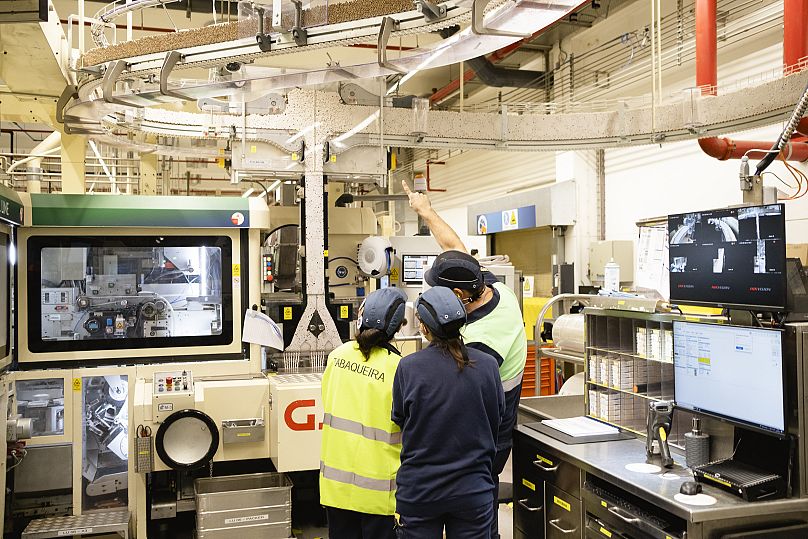Environmental, social and governance (ESG) goals should align closely and support a corporate’s broader strategy and vision if they are to be achieved successfully, argues Jennifer Motles, the Chief Sustainability Officer at Philip Morris International (PMI).
 ADVERTISEMENT
ADVERTISEMENT
 ADVERTISEMENT
ADVERTISEMENT
According to Motles, to ensure sustainability initiatives are prioritised they need to be integrated into the company’s strategy. Integration is particularly important to PMI since it began on the transformational journey of becoming a smoke free company.
“It all starts with understanding who you are and where you want to go. Since we began our transformation, we have increasingly aligned our sustainability goals to that mission as that is the biggest impact we can make as one company.
“We need to be thinking about circularity and carbon emission reductions as they relate to our product transition, so we’re taken seriously by civil society, governments, shareholders, and our customers,” she said.
Motles says approaching ESG should start with leaders figuring out first how to drive innovation related to the core value proposition before evaluating other areas such as day-to-day operations, employee experiences and supply chains.
Smoke-free products for public health
Since 2008, PMI has invested more than $10.5 billion (€9.75 billion) on developing, scientifically substantiating and commercialising smoke-free products to replace cigarettes for adults who would otherwise continue to smoke.
By 2025, PMI’s ambition is to be a majority smoke-free company in terms of total net revenues. In the longer term the company is exploring business opportunities in healthcare and wellness.
Its goal is not only to stop selling cigarettes eventually as a company, but to lead an industry-wide transformation where cigarettes are phased out completely across the world. The company believes that, with the right regulatory frameworks and support from civil society, it can happen in the next 10-15 years in many countries.
“As the CSO, if I am only talking about the measures we’re taking to improve water use or increase renewables at our factories, that will not be enough. We must think bigger - how do we make better products as they impact public health as well as the planet?
“That’s what PMI is focused on,” she said.
A mindset of systems change
Transitioning from being one of the largest cigarette manufacturers to becoming a smoke-free company requires adopting a mindset of 'systems change'. This means understanding the bigger picture, along with the interconnected elements within an organisation and its industry, and how they interact with one another.
Ultimately, systems change is accepting that all parts of the ‘old system’ will need to break down and be recreated for a new system to emerge, one that is relevant to a sustainable and digital world. Incremental innovation will not be enough for a transition of this scale.
From the perspective of PMI, systems change means replacing core products, building new manufacturing facilities, redesigning supply chains and leading change management, education, and communication campaigns. It’s a process that will take decades and cost billions.
Motles says that because tobacco companies have always been under high scrutiny, it’s even more important to demonstrate consistently how this change is happening across product, environmental, social, and corporate by giving concrete examples and publicly reporting metrics and impact.
PMI has now begun implementing its Low-Carbon Transition Plan, made up of science-based initiatives that will help the organisation reach net zero by 2040 in scope one, two and three, and carbon neutrality in its direct operations by 2025.
Reducing the carbon footprint of its manufacturing facilities through enhancing energy efficiency and switching to renewable energies, for instance, or improving the recyclability and design of smoke-free products and spearheading anti-littering campaigns are some examples.
Recently, the manufacturing factory in Portugal, one of the most important production centres in terms of production volume for PMI, was re-certified by the Alliance of Water Stewardship (AWS) because of water conservation efforts. In 2019, it became the first factory in the country to be certified by the AWS. The company is also scaling up the use of renewable energy onsite.
“In addition to our internal initiatives, we can play an important role in terms of sharing knowledge, anticipating challenges and sharing technology with our smaller partners in their
decarbonisation path. After all, we are a multinational company with 71,000 employees worldwide with supply chains deeply connected to agriculture.”
Legitimacy relies on consistency and coherence
PMI has also put in place a bespoke set of core metrics, which they call Business Transformation Metrics, that allows its stakeholders and the public to measure progress and assess the pace, scale, and impact of the transformation. Ensuring the progress is transparent to policymakers, consumers, civil society, and investors is an important part of building legitimacy - and achieving systems change.
“When you allow your stakeholders to really have free visibility of what transformation looks like, they can get a better grip on the complexity of the endeavour. Our transition requires much more work and cooperation with the outside world, so we welcome their interest and feedback.
“Working with multiple stakeholders to develop collective responses and implement long-term solutions that involve a change not just in attitudes and behaviours, but also in laws and policies, is a big part of our ESG and corporate mission,” she concluded.

